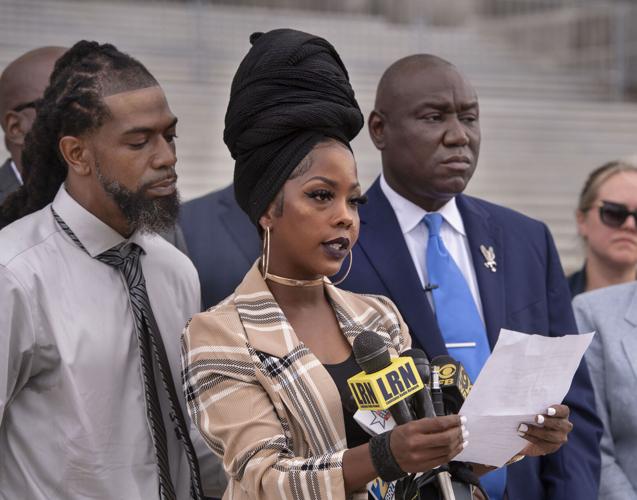A woman who was denied an abortion for a fetus without a skull at a Louisiana hospital, renewing anger among many over the state’s strict abortion ban, traveled to New York and got the procedure legally there.
Nancy Davis, 36, had her pregnancy terminated Sept. 1 after traveling 1,400 miles to a Manhattan clinic to get the abortion, her brother-in-law, East Baton Rouge Metro Councilmember Lamont Cole, confirmed.The Guardian first reported the news.
Louisiana’s law, which was updated by legislators and Gov. John Bel Edwards this year, bans abortions at zero weeks of pregnancy, with only limited exceptions for life of the pregnant woman or medically futile pregnancies. Davis was 10 weeks pregnant in late July when Woman’s Hospital in Baton Rouge denied her an abortion, citing the state’s strict abortion laws that subject doctors to prison time if they perform an illegal abortion.
Davis’s fetus had acrania, meaning it was developing without a skull, and doctors initially told her she qualified for an abortion under a list of “medically futile” conditions created by the Louisiana Department of Health. But the hospital later told her she would have to carry the fetus to term or go to Florida for an abortion.
Woman’s Hospital declined to comment on Davis’s case.
“There has been much discussion over the interpretation of some of the new legislation regarding treatment for medically futile pregnancies,” Woman’s spokesperson Caroline Isemann said in a statement. “As medical providers, Woman’s Hospital stands by our mission to provide the best possible care for women in our community, and supports medical decisions made between a physician and their patient that comply with all state laws and policies.”
The Louisiana Department of Health, which created the “medically futile” list, did not respond to questions Wednesday.
Davis’s case became a flashpoint in the fight for abortion access in post-Roe Louisiana, galvanizing opponents of the state’s strict ban. Some lawmakers have indicated they want to revisit the law when the Legislature convenes next spring. Louisiana’s Legislature, a reliable ally of the state’s anti-abortion associations, has passed a slew of abortion restrictions over the years.
Proponents of Louisiana’s abortion ban, including Democratic state Sen. Katrina Jackson, D-Monroe, argued the hospital “grossly misinterpreted” the exceptions to the abortion ban, and said the law allows Davis to get an abortion in Louisiana. Woman’s Hospital didn’t respond to questions about whether it is currently providing abortions for conditions like acrania.
Jackson and 35 other lawmakers also said that many of them share a faith that would “compel us to carry this child to term,” even as they said the law allows for an abortion in Davis’s case.
Doctors who deliver babies with acrania prepare for palliative care rather than newborn care because babies largely cannot survive without a skull.
Louisiana’s law has sparked a battle over the future of abortion rights in the wake of the U.S. Supreme Court decision this summer to end a half-century right to the procedure. Advocates briefly won stays of the state’s ban, but the state Supreme Court ruled that the ban must go into effect while the state appeals an early loss in East Baton Rouge Parish district court.
People seeking abortions must now travel to other states to get it done legally.




